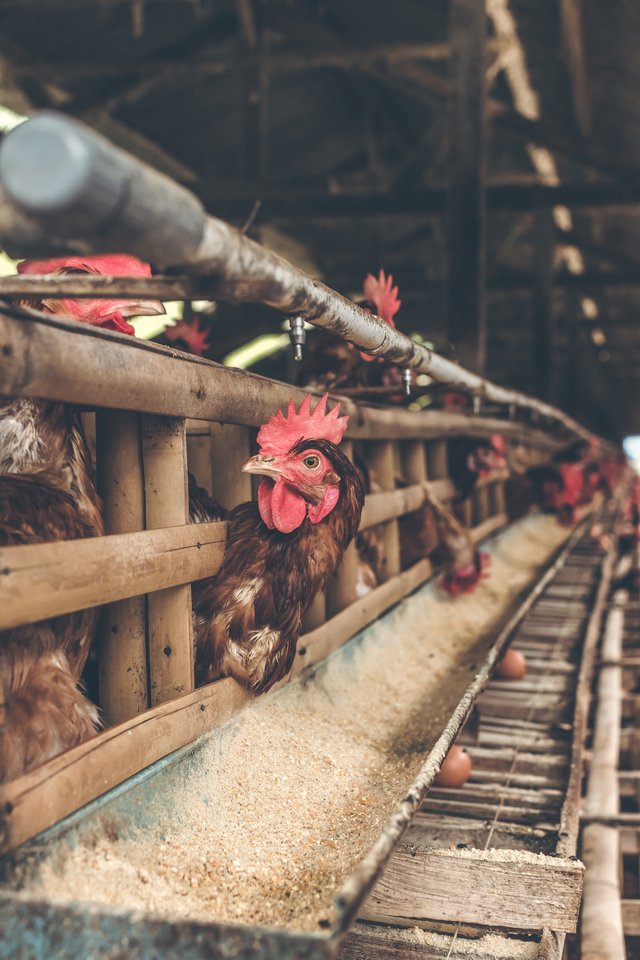How to Make Chickens Lay More Eggs Without Drugs
If it is possible to make your chickens lay more eggs, then why don’t you just ask? Well, the truth is a lot of people ask me this question all the time. In fact, I can say that people can’t get enough. Even when some layers suddenly fall to 89% production after doing some 93%, farmers still want to take the number up. I don’t blame them; who doesn’t want more eggs, and more money?
But let’s talk about critical situations – when you find out that your hens can hardly pay for their feed. Or when what is left after production cost is not as expected. At this stage, you really need something that works. So, I will help you.
- Advertisement -
There is no one thing that solves the problem automatically. No! Except you want me to lie to you. But drawing from my experience with laying birds, there are some things you can do to make your chickens lay more eggs. Quickly, let’s consider some of the factors.
- Advertisement -
Table of Contents
Always Supply Cool Clean Water
People underestimate the effect of cool fresh water in egg production. If you ever subject your layers to dehydration, it will impact their laying negatively. Hence, if you want to make your chickens lay more eggs, you must supply cool fresh water at all times. Don’t also forget that the internal content of an egg is mostly liquid.
Using Feeding to Make Chickens Lay More Eggs
If there is just one category of chickens that will only give you what you want if you feed them as they want, then that would be layers. Layers want just the adequate amount and quality of feed to produce optimally. If you feed any less, they will under-perform. If you overfeed them, they will also under-perform. Therefore, you need to pay close attention to layer feed consumption. Also, take note of the protein and energy requirement of the breed you have and make sure your feed takes care of that. I know that a lot of people just choose a commercial feed for their flock but it’s good to occasionally check if that feed truly has what the manufacturer says. The way to do this is by carrying out proximate analysis of the feed, or ask a professional in the field to help you.
READ ALSO: 5 Secrets of Successful Egg Production
Using Lighting to Make Chickens Lay More Eggs
If you have studied about layers, you will realize that they require up to 16 hours of day light to perform optimally. This is not to say that you should give the birds 16 hours of light from day 1. No, this length of day light is required when the birds are fully into production. Normally, what we get is maximum of 12 hours of daylight, so you need 4 hours supplementary lighting. You can choose to give your birds light for 2 hours in the morning before sunrise, and 2 hours after sunrise. It is established that photoperiod is the most important factor that affects the concentrations of follicle-stimulating hormone (FSH) and luteinizing hormone (LH). These hormone play a major role in egg formation, so you don’t want to deprive your hens.
Using Supplementary Calcium to Boost Egg Production

Let me use reverse engineering to explain something here. While preparing some of the strongest Organic Medications that are in my book (Your Complete Guide to Organic Poultry Farming), we use egg shells as the major source of calcium. This is to prove to you that eggs are loaded with calcium, and the calcium comes from the hen’s diet or, sadly, her bones. If your hen’s feed is low in calcium, she will not only lay eggs with weak shells or without shells at all, she will also lay less.
A quick method to solve this problem is to provide calcium supplement, mostly in water. You can also use the wonderful Multivitamin Calcium discussed in my book. The simple process of making it from readily available ingredients is discussed in the eBook.
Preventing Egg Eating
Egg eating automatically reduces the number of eggs available for sale or use. I don’t need to tell you that this is a profit slash for the farmer. But how do you prevent egg eating? First you need to pick your eggs as soon as possible. I don’t want to say as soon as the eggs are laid because that is not always possible. You need to also prevent overstocking and dehydration.
Convenient Laying or Nesting Boxes
Did I forget to tell you that hens love to be pampered? And you have the opportunity to pamper them more if you are using deep litter and have nesting boxes for them. However, there’s more. These nesting boxes should also partially covered with a cotton to create a dark room for the hens. Yes, hens love to lay in somewhat dark places. This way, your eggs will also be neater and free from cracks.
Provide a thick layer of bedding for chickens to lay more eggs
I know you might want to ask “what has bedding got to do with making chickens lay more eggs?” I’m happy to tell you that I am not just here to drop some points, I will explain. A thick layer of bedding does so much and indirectly affects egg production in ways you may not know before.
How thick bedding improves egg production
- Thick bedding prevents egg breakage: some eggs crack when laid because they land on had floor. Thick bedding will eliminate this and increase the number of available eggs
- Reduced risk of disease: thick bedding reduces the risk of diseases like coccidiosis which also impacts egg laying.
Using Organic Egg Booster to Make Chickens Lay More Eggs
You may not know the wonder in using plants until you start organic poultry farming. With some freely available ingredients, you can make the best egg booster ever. All you need is some fish (a unique fish), moringa (in the right amount), molasses (our surest organic preservative), water, and ugu leaves and seed (iron storehouse). Click here to learn how to make this wonderful egg booster.
Allow your Hens to Fully Mature before they Lay
I have a full blog post on this one. Research has shown that hens that mature well before laying often maintain a longer peak period than others. Apart from laying longer, they also lay bigger eggs and more eggs overall. You can read the post on how to make your hens lay big eggs from start here.

